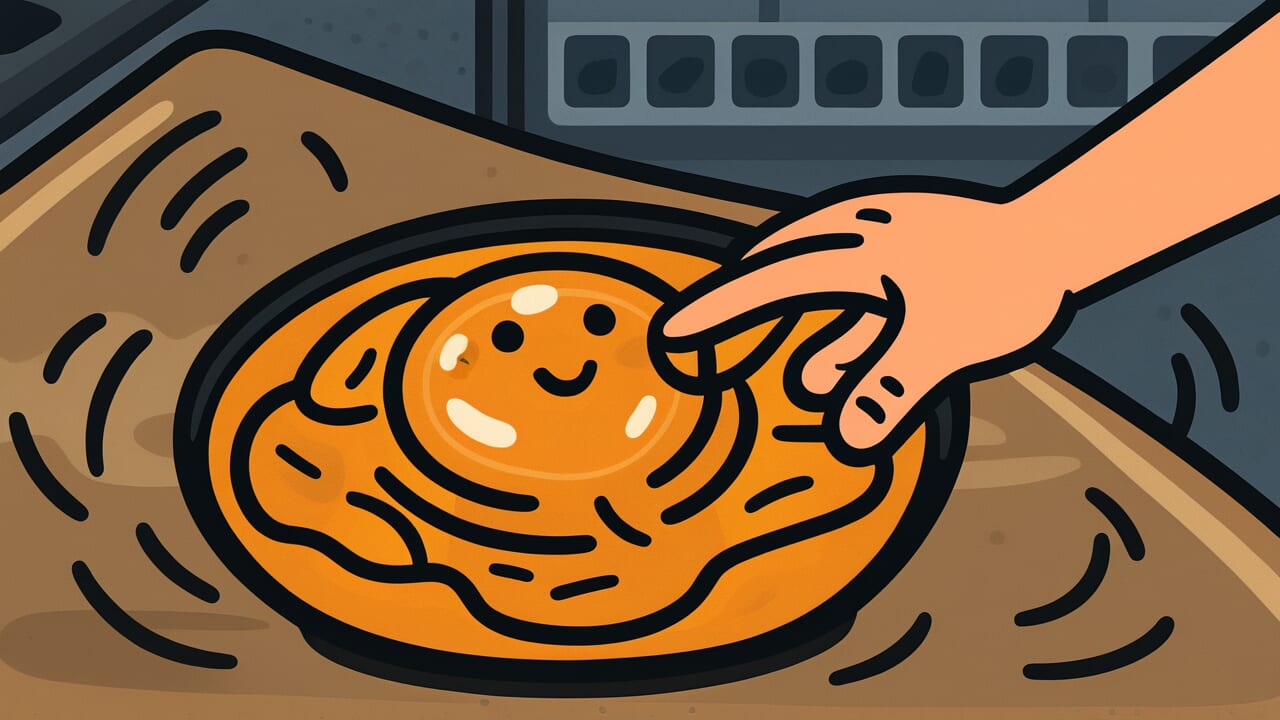How to Read “Crush what has festered”
unda mono wa tsubuse
Meaning of “Crush what has festered”
This proverb means you should solve problems early instead of leaving them alone.
Just like an infected wound gets worse if you ignore it, troubles in relationships or work will only get worse if you pretend they don’t exist.
People use this saying when problems arise at work, misunderstandings happen in families, or troubles occur with business partners.
It warns against thinking “I’ll deal with it later” or “It’ll solve itself.” Instead, it teaches the importance of handling issues early with courage.
Solving problems often involves pain or discomfort. But like the temporary pain of draining an infection, this discomfort is a necessary part of healing.
Even today, people widely recognize that early action minimizes damage, whether handling customer complaints or discovering misconduct at a company.
Origin and Etymology
No clear written records explain the origin of this proverb. However, we can understand it by examining the words themselves.
The word “fester” describes when bacteria enter a wound and cause infection. Yellow pus collects inside.
In times before modern medicine, infected wounds were dangerous. If left alone, the poison could spread through the body and threaten life.
The basic treatment was to drain the pus early and keep the wound clean.
Wise ancestors noticed this medical knowledge also applied to human relationships and social problems.
Small problems grow worse if ignored. Eventually they become impossible to fix.
That’s why you should act early when you see signs of trouble, even if it hurts.
During the Edo period, common people used this saying about relationship troubles and business problems, just as they talked about treating physical injuries.
They told each other to “crush what has festered quickly.” Concrete experience with treating the body transformed into wisdom for life.
Usage Examples
- The team atmosphere is getting bad, so let’s follow “Crush what has festered” and talk together today
- It’s just a small misunderstanding with our client, but “Crush what has festered” is right—I should go explain now
Universal Wisdom
Humans have an instinct to look away from unpleasant things.
When problems are small, we tell ourselves “It’s still okay” or “It’ll work out somehow.” We pretend not to see them.
But problems always get worse when left alone. This truth never changes, no matter the era.
“Crush what has festered” has been passed down for generations because it understands this human weakness.
Facing problems takes courage. You might hurt someone. You might get blamed. The relationship might break.
These fears stop us from acting.
But our ancestors learned the importance of early action through the familiar experience of infected wounds.
If you fear temporary pain and do nothing, eventually poison spreads through the whole body.
The same happens with relationships and organizational problems. A small discomfort, a tiny crack, a minor wrongdoing.
Overlooking these things because “they’re still small” leads to situations you can’t fix.
This proverb teaches that the pain of solving problems is part of the healing process.
If you have courage to drain the infection, the wound heals and returns to health.
This hope allows people to face difficulties.
When AI Hears This
The moment an abscess bursts reveals a fascinating physical phenomenon.
Pus collecting under the skin works like pressure building in a sealed container.
As the liquid increases, pressure on surrounding tissue rises exponentially.
Then, past a certain point, slight external force breaks the tissue and contents discharge rapidly. This is a phase transition critical point.
Notice that the energy needed before and after this critical point differs completely.
In early stages with little pus, forcing it open requires great force that damages healthy tissue.
But when enough pus has collected—at the critical state—a light needle prick starts natural drainage.
The system exists in unstable equilibrium, so small intervention triggers a chain reaction.
This follows the same principle as avalanche formation. As snow accumulates on a slope, reaching a critical angle means one pebble can trigger a massive avalanche.
Organizational problems work similarly. Forceful intervention backfires before dissatisfaction and contradictions reach critical mass.
But identifying the limit point allows minimal action to transform the entire state.
Recognizing the right timing is the decisive factor determining intervention success.
Lessons for Today
This proverb teaches modern people the importance of courage to face problems.
You’ve probably experienced this. A small discomfort at work. A minor misunderstanding with a friend. Something hard to say to family.
You postpone these things, thinking “It doesn’t have to be now.”
But somewhere in your heart, you know the truth. The problem won’t disappear.
Rather, as time passes, it becomes harder to discuss and more difficult to solve.
Modern society often avoids pointing out problems as “making waves.”
But isn’t true kindness about protecting long-term health, not avoiding temporary discomfort?
If you have a problem to face now, it’s a chance to grow.
Through solving problems, you become stronger, relationships deepen, and organizations become healthier.
The pain of draining infection is temporary. But regret from leaving it alone lasts long.
Take that courageous first step. A refreshing tomorrow surely waits ahead.



Comments